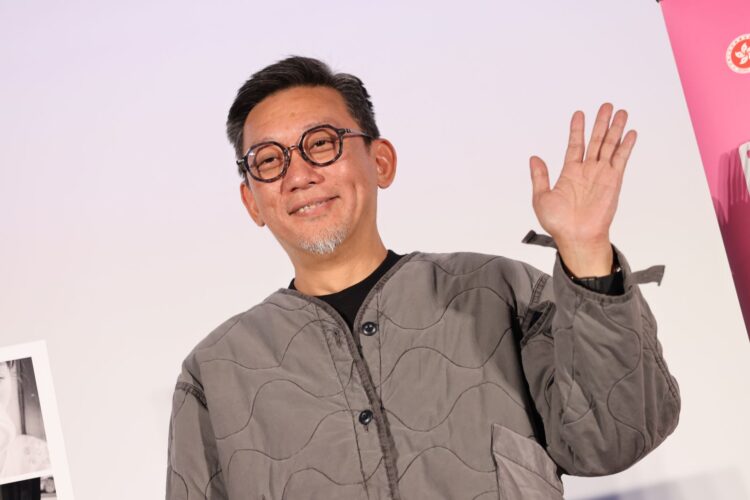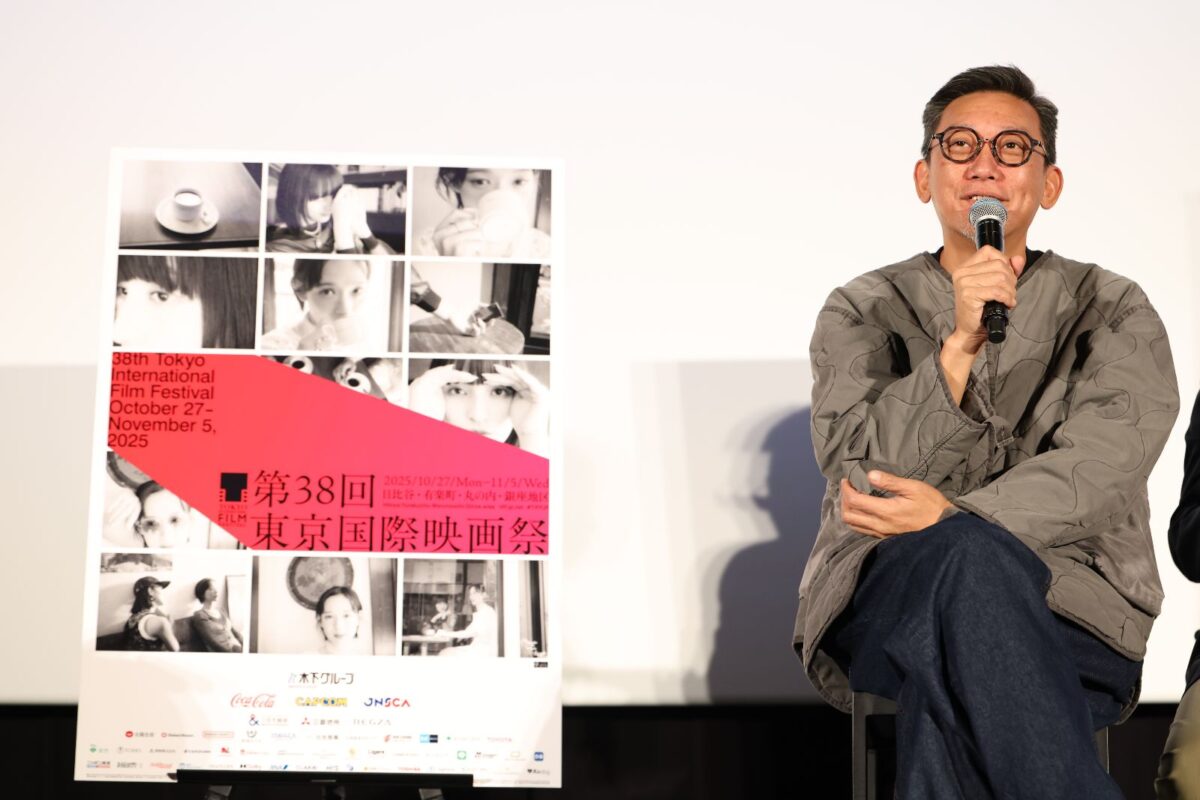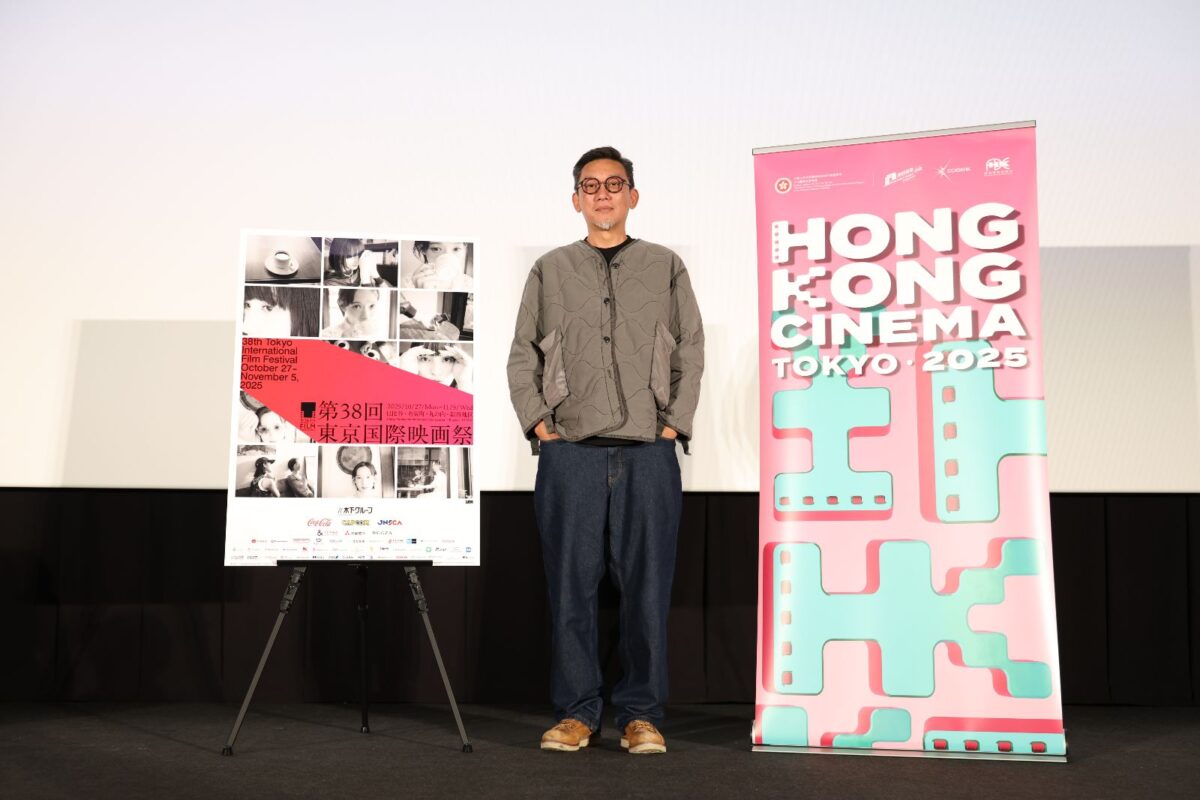
If not quite so known as many of his Hong Kong contemporaries, Soi Cheang has mastered nearly every genre and style for which the national cinema is so beloved. While early cult favorites New Blood or the Johnnie To-produced Accident gave way to the likes of smash hit Kill Zone 2 or the blockbuster Monkey King trilogy, recent years have found Soi mixing festival favorites (Limbo) with major international crossovers (Twilight of the Warriors: Walled In).
Little surprise that he’d give a masterclass seminar at this year’s Tokyo International Film Festival, which concluded with a screening of Walled In. I had the fortune of sitting with Soi shortly before the seminar began, and over the course of half an hour received a personal instruction in how he’s operated across Hong Kong’s industry for a quarter-century.
The Film Stage: You’ve made so many films across so many genres, and subgenres within those. When you were asked to give a masterclass, did anything emerge as invariable advice––a core tent of your practice?
Soi Cheang: In terms of the artistic, and also the handling of the film, there’s not much I can talk about for a new director; I don’t want to affect their creativity. But what I can do is share my own experience and how I handle problems when I shoot a film. I think this is the best way to affect a new director.
What are consistent problems you’ve faced as a filmmaker?
Loss. I get lost all the time during shooting. During shooting, I often felt I would feel lost. This is natural. When a director wants to express his own idea during the creative process, you always find loss in all different phases, but this is natural. It will accompany a creative person their whole life; the creative person will only think that they will get lost from time to time, until they find their own way, until their way of filmmaking is the right way for them. The processing is long and you will get lost all the time until you say, “This is my style.” Don’t evade the loss.
On something like the Monkey King trilogy, which are big effects films, or Accident, which is very smooth and romantic, or Motorway, which has a more traditional action-thriller element, or Limbo which is a really harsh detective film––what’s distinct about the ways you get lost on each?
The Monkey King is a franchise. It’s kind of a big experience, or lesson, for me to learn. I tried to, what I’d say, is “hide myself” because this is a franchise; whoever directs the film is not important. The characters are most important. So I basically tried to hide myself. Because the character is so familiar to the audience, so basically I just wanted to present a story to the audience without really showing myself; I cannot hide myself. And that might be what you say is kind of “lost”––that I should go back to Hong Kong and shoot Limbo. I hope to find my style. I also feel some kind of “lost” whether this is the right thing I want to do or the right style, and I finally decided black-and-white for Limbo.

Many of your recent films have been action and crime, but your early career was concentrated in horror. I wonder if that left an indelible mark on the shape and tone of your work, which can be darker and harder than, say, a typical action movie or detective story.
Yes, I think the early style of my horror films instilled something that is my strength. Because I know how to set up the atmosphere and the mood. But the way of the style is: after several years, when I shot horror films and the atmosphere came out, my style then came out. I think this is that, in the beginning this was something that I’m good at, and when I got the style I thought, “This is the way I see the world, and this is the way I will see the film.” The previous work affects the latest work.
You’ve been very honest about the impact of certain elders you worked with. The time with Milkyway left its mark, as did being in the employ of Ringo Lam.
Ringo Lam always saw a film, maybe, from the dark side. “This is where the people are living. This is those lucky people, but there’s always that side of those people.” That’s how I learned from Ringo. It’s more about the attitude that I learned from Johnnie To at Milkyway. I’d already shot several films before I would collaborate with Johnnie To on a film, and when the time came, I thought, “This is the time I really understood the film: how amazing, how gorgeous the film is.”
It’s not something that’s easy. Even though you are directing several films, there’s still a lot of ways for you to improve––that’s what they think. So from Ringo I learned that you can look at the dark side of the people, and then from Johnnie To it’s something that I can push much further as a film, as a whole.
Did the time from Accident to Mad Fate change your working relationship with To?
I thought that Johnnie To would get more confidence in me after several films, but it’s the same: his comments are really straightforward and honest. So if I feel that something is not right, he would… not yell, but get angry. But I love it! [Laughs] After I made several films, I’d go back to Milkyway and it felt like going back to school.
You had this major international success with Twilight of the Warriors. Have you found anything of your position in the Hong Kong industry change as a result? What kind of pressures emerge on someone trying to maintain a creative mantle?
For sure there will be some effect on my later work. I’ve been thinking about, because the film is such a commercial success, that I get awards and money for the film, so I’m thinking about the next step––whether I will shoot a similar type of action film or totally art film. I still have to find a way to figure this out.
There were reports you’d shoot a sequel and prequel.
Yes, I’m thinking about shooting a sequel and prequel. But hopefully the sequel first, because shooting a prequel would be more difficult because I’d have to remake the whole ‘50s. Totally different. But the sequel, it’s more market trend because the young people, it will be easier to handle a story––what happened to them––than doing the prequel. But the scripts are developed at the same time.

What are your relationships with action directors and stylists? How do you go about developing a film with someone in such a role, using their expertise, but ensuring the film remains your vision?
Yes, the way that I work with an action director or choreographer is: they will do their tests and trial before the shooting. Once the style is set up, I will tell them to pose as the character. For instance, the fighting scene: how it’s done and how it hurt. Whether the character will get hurt at the end, or nothing happens. I will tell exactly what happened during the fighting sequence to the action choreographer. Then we will start doing the panel. And also the drama, the premise of the drama for the fighting scene.
During the fighting scene, I will be on-sight to do the supervising. If the fighting scene is something that I want, then it keeps on going; if something is not right, then I will stop and discuss how to make the dramatic premise for every fighting scene. I basically tell the choreographer the premise of the fighting scene, and other than that, they can do their own choreography.
Do choreographers tend to think of drama in similar terms as a director, actor, or screenwriter?
Yes. Basically, yes, they will be in the same direction, because they not just listen, but will express what they think to the director. Sometimes, if they think a different way, I’ll listen to what the action choreographer will want to say and see if their way is better than mine.
You exist at a strange midpoint between a certain classic era of Hong Kong cinema and its modern iteration. How are you feeling about it in this moment, and its potential future.
Who knows? [Laughs] I think that if there are still new directors coming out and they have dreams, there is a future for the Hong Kong film. But how it will go further is something I don’t know. But if new directors have the dream and a passion, there is still a future. Right now, not just Hong Kong but the whole film industry is quite difficult. How they position themselves is something we have to think about. I hope they can define what is a new Hong Kong movie. I hope they can do it.
The post Soi Cheang on Directing Action, Twilight of the Warriors Sequel, and the Future of Hong Kong Cinema first appeared on The Film Stage.
from The Film Stage https://ift.tt/SxarJpd


0 Comments